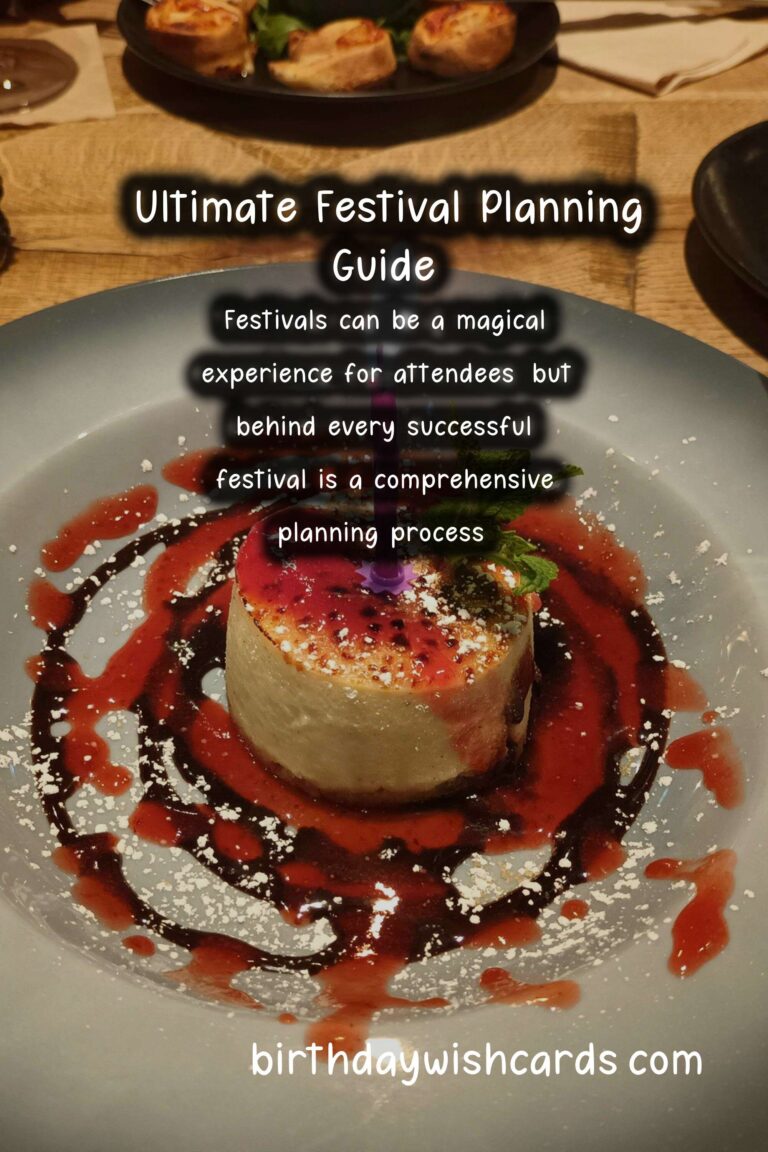
Festivals can be a magical experience for attendees, but behind every successful festival is a comprehensive planning process. Whether you are organizing a music festival, food festival, or cultural celebration, having a solid plan is crucial. This guide will provide incredible ways to navigate the complexities of festival planning.
1. Define Your Festival Goals
Before you dive into the nitty-gritty of planning, it’s essential to define your festival’s goals. Are you aiming to celebrate a cultural heritage, promote local artists, or raise funds for a charity? Understanding your objectives will guide all subsequent decisions.
2. Build a Detailed Budget
Your budget is the backbone of your festival planning. Include all potential expenses, from venue rental and permits to marketing and artist fees. It’s wise to have a contingency fund for unforeseen costs. Remember to explore sponsorship opportunities to offset costs.
3. Choose the Perfect Venue
The venue can make or break your festival. Consider location, capacity, amenities, and accessibility. It’s crucial to visit potential venues to assess their suitability. Also, consider the layout for stages, food stalls, and restrooms to ensure an enjoyable flow of traffic.
4. Assemble a Planning Team
Planning a festival is not a one-person job. Assemble a dedicated team that includes individuals with expertise in different areas such as logistics, marketing, and volunteer management. Each member should have clearly defined roles to streamline operations.
5. Create a Timeline
Developing a detailed timeline is essential to keep your planning on track. Break down tasks by weeks or months leading up to the festival date. Include deadlines for vendor contracts, marketing launches, and volunteer recruitment.
6. Secure Necessary Permits and Licenses
Complying with local regulations is crucial for the smooth execution of your festival. Research the necessary permits and licenses required in your area, and apply for them well in advance. This includes permits for food vendors, sound policies, and safety measures.
7. Curate an Awesome Lineup
If your festival includes performances, curating a great lineup is key to attracting attendees. Research artists and performers who align with your festival’s theme and audience. Consider also providing platforms for local talent to showcase their skills.
8. Plan for Marketing and Promotion
Getting the word out is essential for attendance. Utilize various marketing channels such as social media, email newsletters, and local publications to promote your festival. Develop engaging content highlighting festival features and early bird ticket offers.
9. Focus on Attendee Experience
Your attendees’ experience should be at the forefront of all planning decisions. Consider the layout, food options, safety concerns, and activities available to ensure a memorable experience. Gathering feedback post-festival can also help improve future events.
10. Prepare for Weather Contingencies
Weather can greatly impact outdoor festivals. Have contingency plans in place, such as tents for rain or shaded areas for extreme heat. Inform attendees about the measures taken to ensure their safety and comfort.
11. Engage Volunteers
Volunteers are the backbone of many festivals. Create a recruitment plan and involve volunteers in meaningful roles ranging from check-in staff to stagehands. Providing training sessions and incentives can enhance their experience and commitment.
12. Create an Environmental Plan
Modern festivals must consider their environmental impact. Develop a waste management plan, encourage recycling, and promote the use of eco-friendly products. Engaging in sustainable practices can also attract eco-conscious attendees.
13. Ensure Safety and Security
The safety of attendees should be a top priority. Plan for security personnel, medical assistance, and crowd control measures. Collaborate with local authorities to ensure compliance with safety regulations.
14. Utilize Technology
Incorporate technology into your planning process to streamline operations. Use apps for event registration, ticketing, and attendee communication. Additionally, consider live streaming parts of your festival for those who cannot attend in person.
15. Follow Up After the Festival
After the festival concludes, take the time to follow up with attendees, volunteers, and vendors. Gather feedback through surveys to identify areas for improvement. Analyzing the festival’s success against defined goals will also help guide your future planning.
Conclusion
Planning a festival requires careful consideration and a structured approach. By following this comprehensive guide, you can create a memorable and successful festival that resonates with your audience. Remember, the key to success lies in detailed planning, effective communication, and a focus on creating the best experience for your attendees. Happy planning!
Festivals can be a magical experience for attendees, but behind every successful festival is a comprehensive planning process. Understanding your objectives will guide all subsequent decisions. 
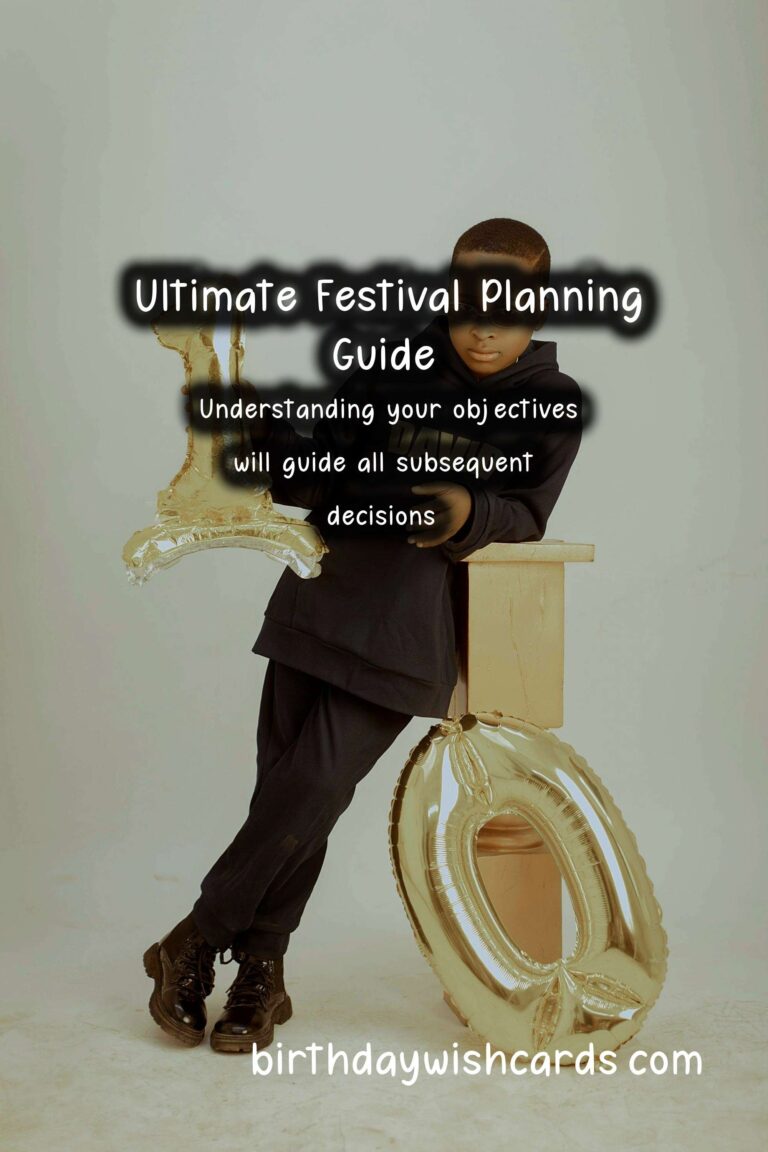
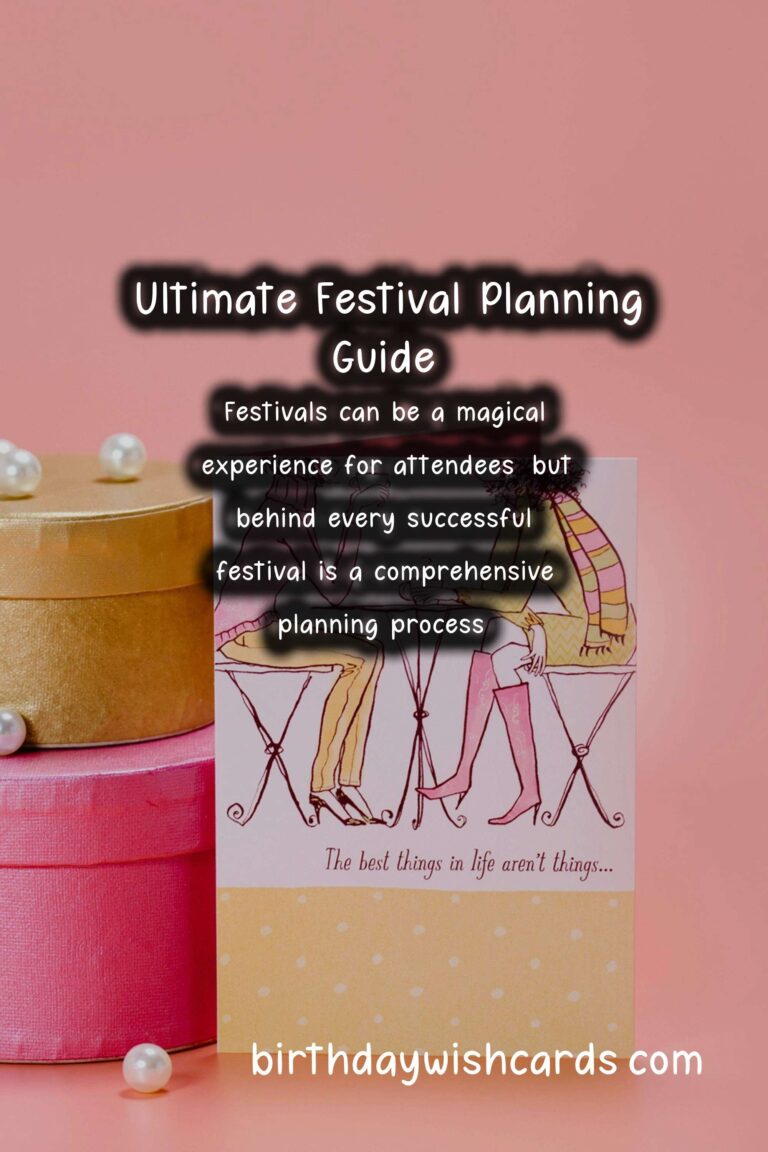
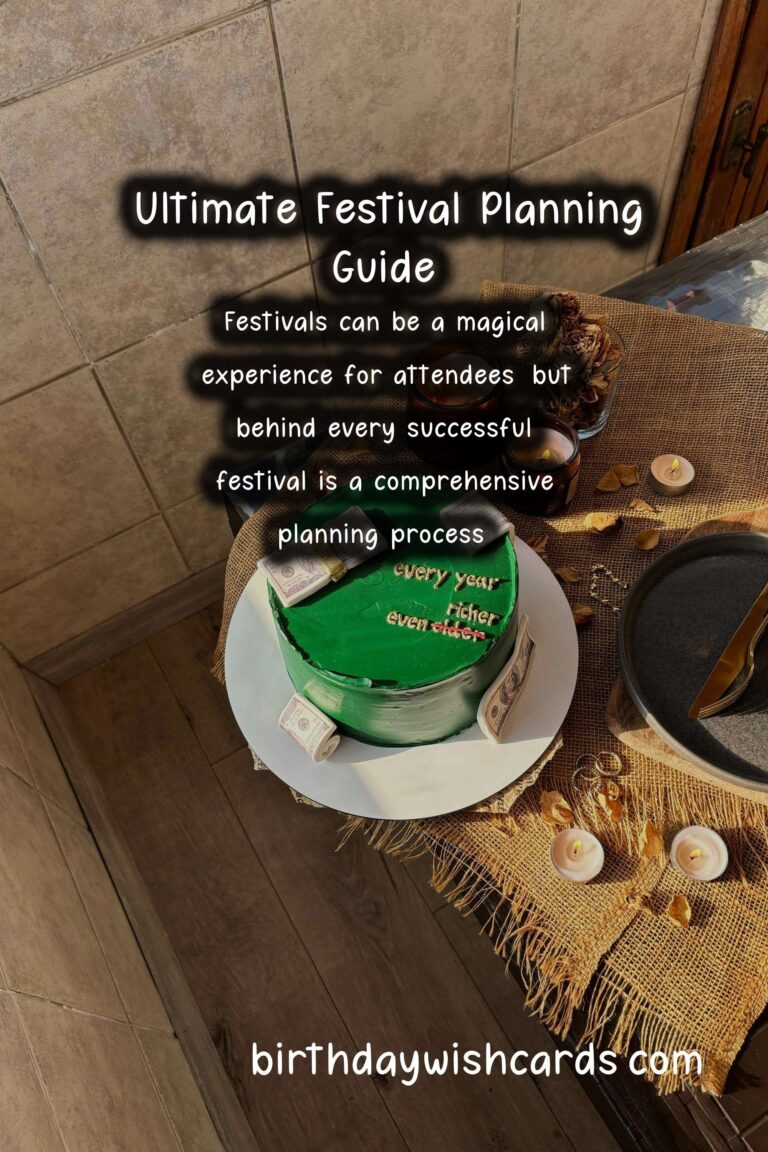
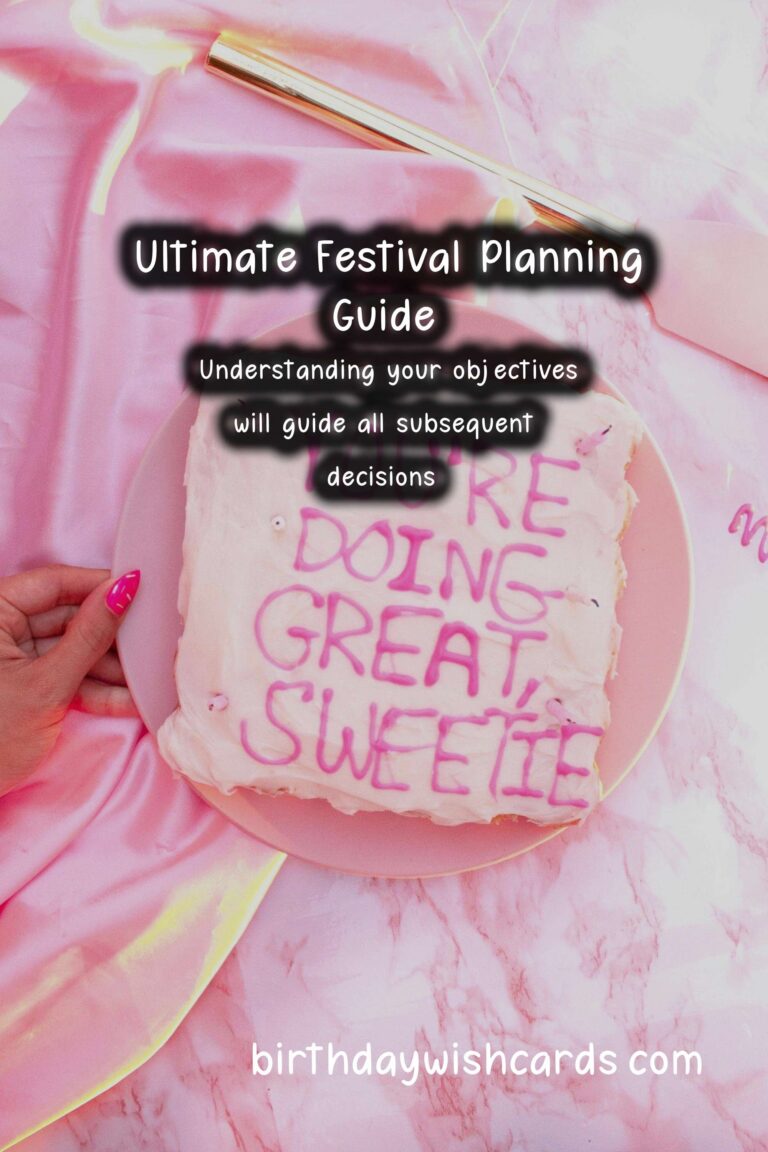
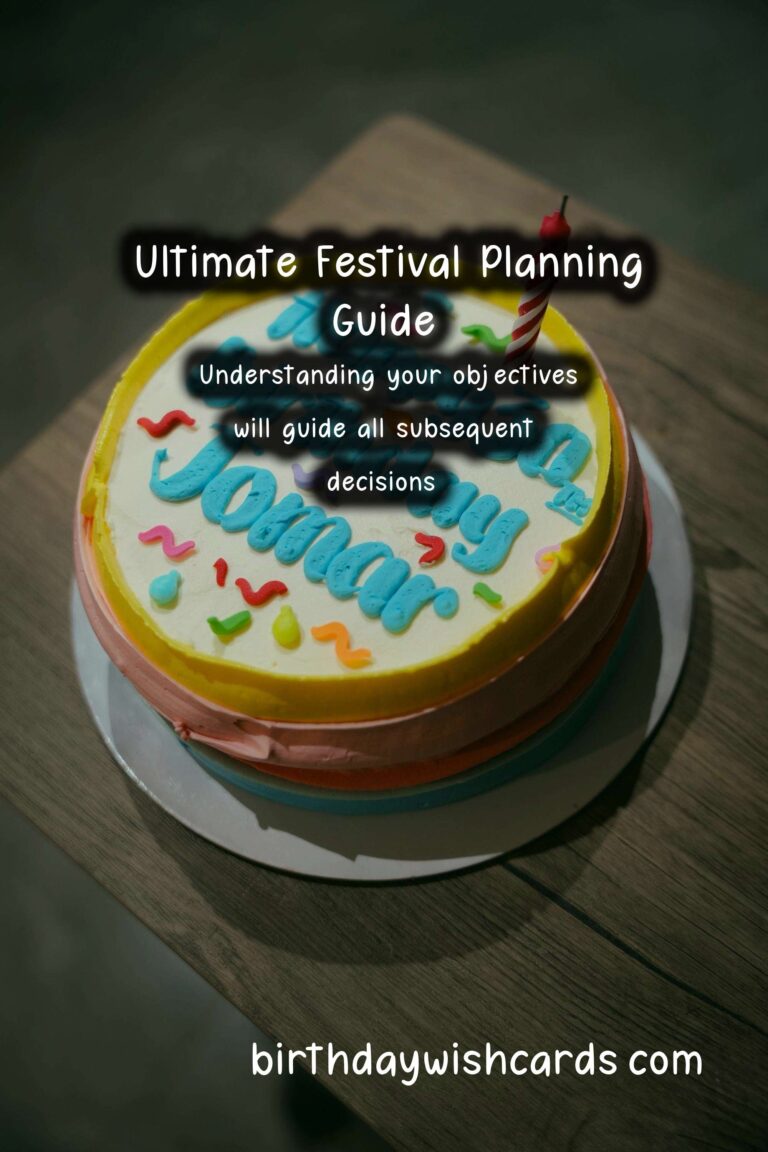
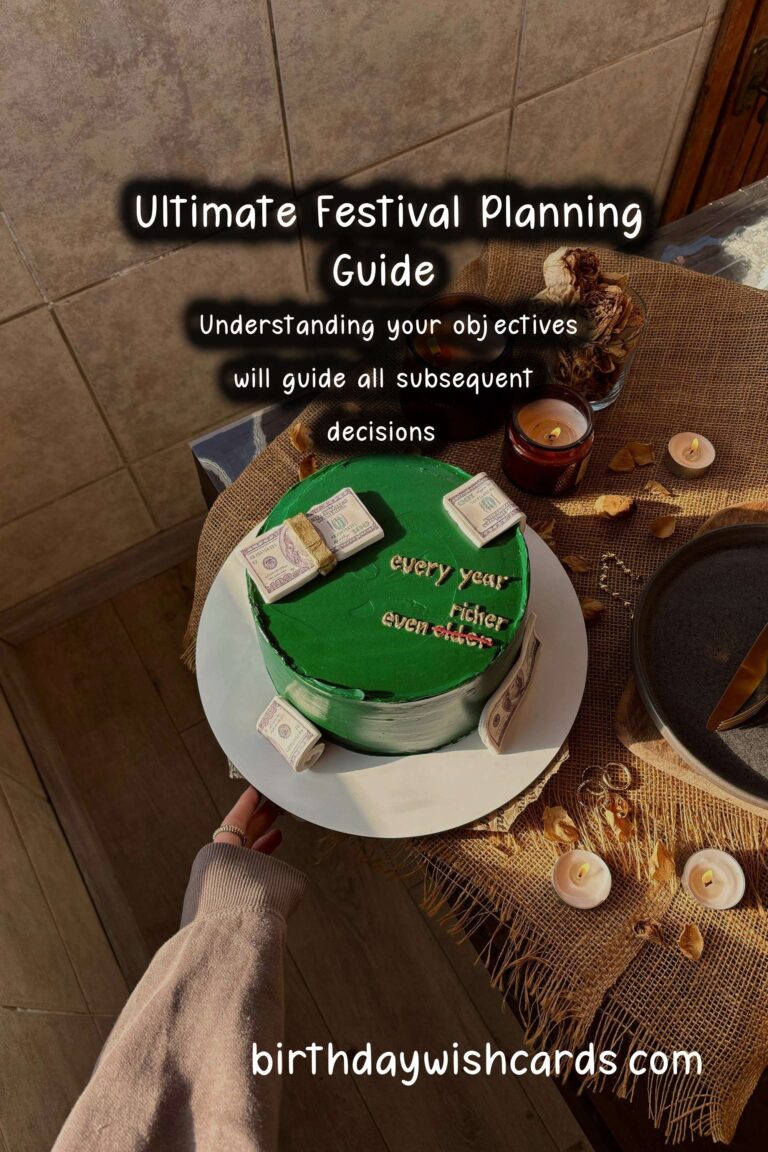
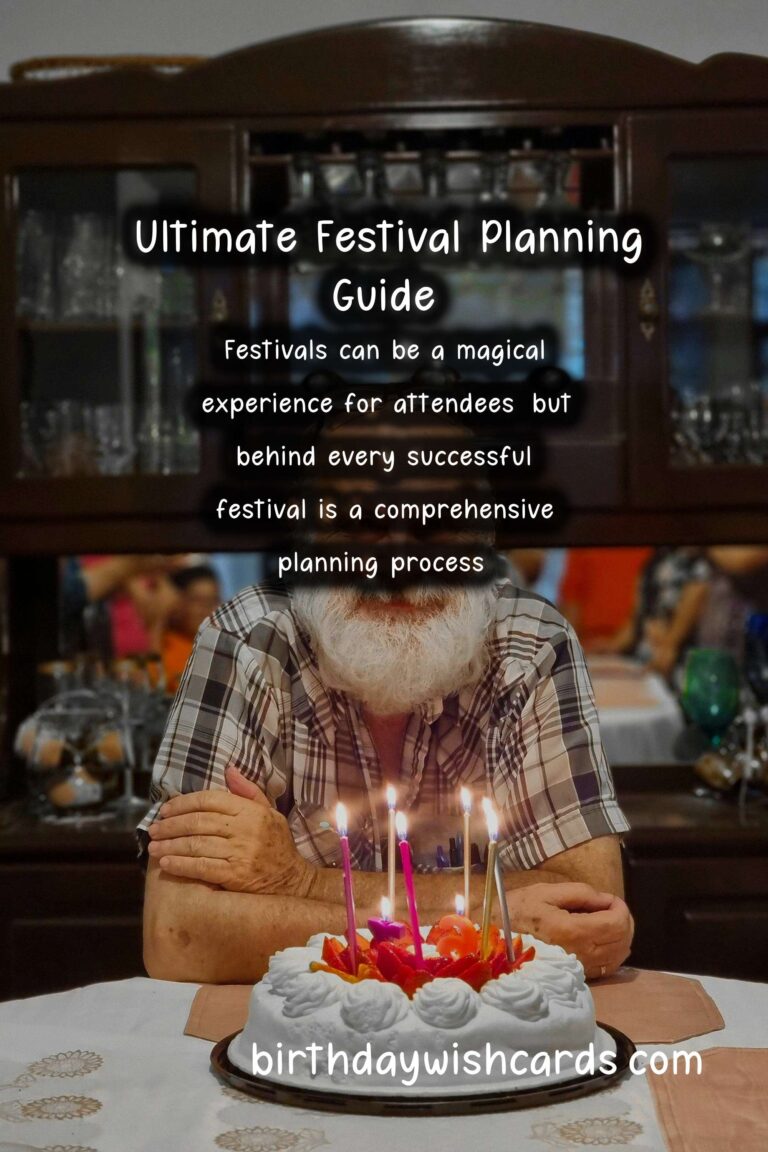
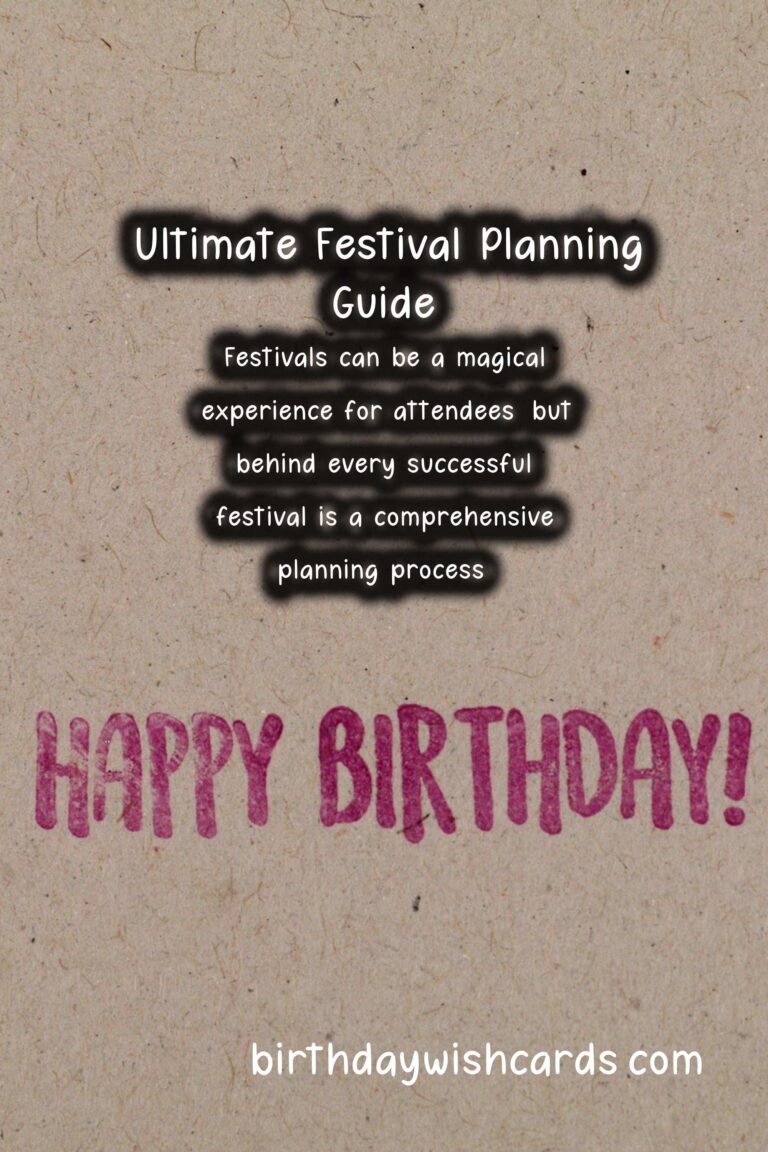
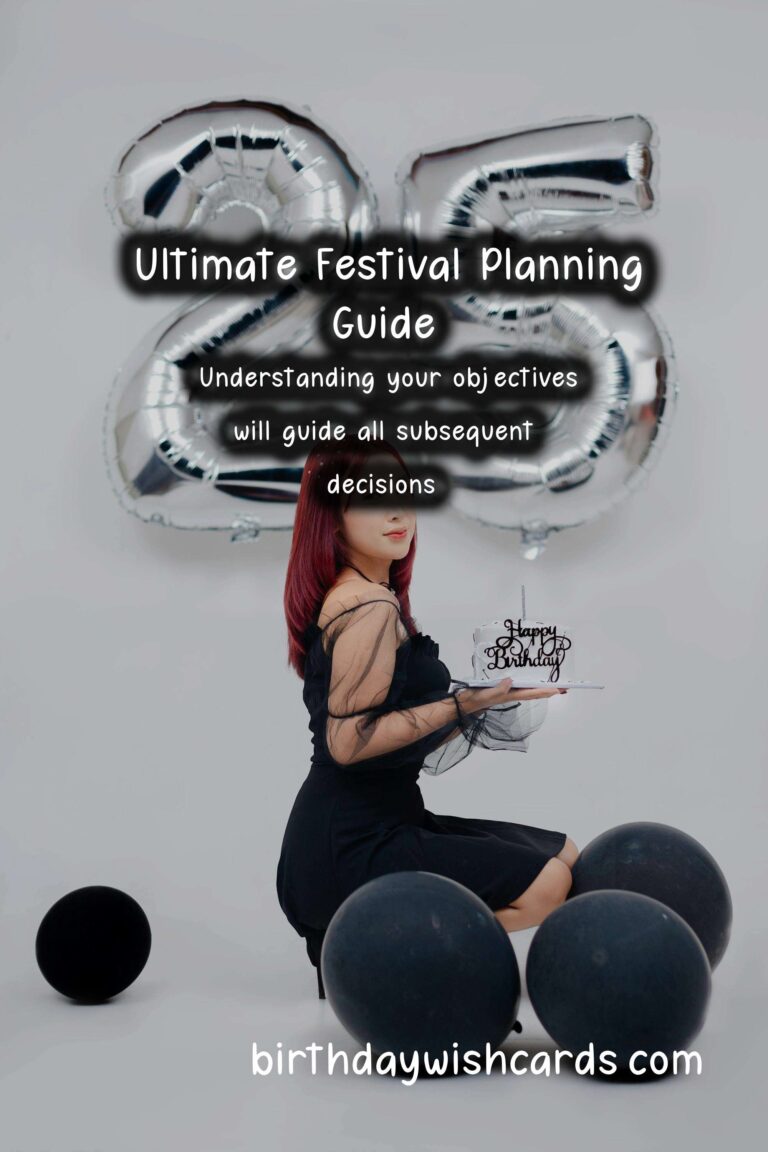
#FestivalPlanning #EventManagement



